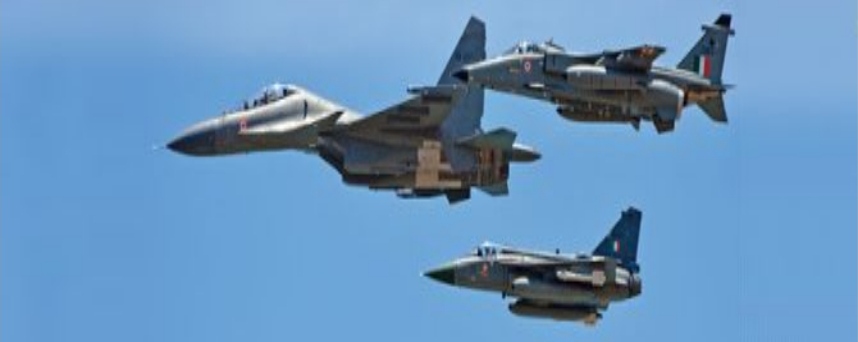Afghan Govt Wants IAF Support To Fight Taliban

While Kabul feels the only way New Delhi can help is through air power, India is unlikely to take part in the war in Afghanistan as it doesn’t believe in such ‘counter terrorism mechanisms’
Kabul: In an unprecedented move, the Ashraf Ghani government has sought “robust air support” from India as the fight between the Afghan government forces and the Taliban insurgents grew more intense in the last couple of days.
The Afghan government is concerned that the Taliban “will most definitely” escalate their level of violence once the US forces complete the drawdown of troops by 31 August and thus the need for air support from New Delhi is now being aggressively pushed by Kabul, top sources in the Afghan government said, requesting anonymity.
The government in Afghanistan wants the Indian Air Force (IAF) to come into the country and support the Afghan Air Force even though the US Central Command (CENTCOM) chief General Kenneth McKenzie made clear that America will give support immediately after 31 August, sources added.
While the request for air support is not new, the Ghani government is “extremely concerned” that the Taliban will now accelerate its violent actions across the country as it continues to make rapid advances. It’s latest advance is happening in Mazar-i-Sharif where fighting intensified Monday.
The matter is believed to have been discussed during a recent phone call between Afghanistan’s Foreign Minister Mohammed Haneef Atmar and India’s External Affairs Minister S. Jaishankar.
However, it appears New Delhi made it clear that it will not be able to take “such a drastic step” as India has never believed in these kinds of “counterterrorism mechanisms”.
Troika Plus Meeting In Doha
All eyes are once again on Doha now as the Qatari capital gears up to host yet another meeting of the peace process under the ‘Troika Plus’ as part of the intra-Afghan dialogue between Afghan government representatives and the Taliban leaders.
The meeting of the Troika Plus, also known as the Extended Troika, which has been called by Moscow, will take place amongst the US, Russia, Pakistan and China.
According to sources, the original plan by Moscow was to invite all regional stakeholders, including India as well as Uzbekistan, Tajikistan and Kazakhstan. However, that did not fructify and it seems now that the meeting, which begins Tuesday at Doha, will have to take some “tough calls” as the Taliban increases its offensive.
“Air power plays a critical role in the Afghan counterinsurgency, and US air power — long a difference-maker in Afghanistan — will soon be removed from the battlefield equation. So it’s not altogether surprising that Kabul would lean on India, one of its closest friends in the region, for such support. But for New Delhi, even with its grave concerns about Taliban advances, the costs of providing such assistance greatly outweigh the benefits,” said Michael Kugelman, deputy director and senior associate for South Asia, Wilson Centre.
He added, “The last thing India would want is to get dragged into the war in Afghanistan, and to inflame tensions in a relationship with Pakistan that is already deeply strained. The use of Indian air power in Afghanistan would be a game-changer with destabilizing regional impacts that New Delhi would much prefer to avoid.”
On the Troika Plus meeting, which will be taking place at a time when Afghanistan is seeing unprecedented bloodshed, Kugelman said that even if these dialogues do not yield desired results, regional powers need to talk amongst themselves and find a solution.
“It’s easy to shrug off the latest regional diplomatic effort to resuscitate a peace process that is seemingly dead in the water, but these meetings matter. And they matter even more now with the US withdrawal. The US and its NATO partners have the luxury of withdrawing and knowing that they won’t be directly impacted by the spill-over effects of war. The regional players have no such luxury,” he said.
“Regional solutions are essential, even if they are and will continue to be elusive. It’s also significant to see, once again, the US decoupling tensions with its Russian and Chinese rivals to cooperate on shared concerns about Afghanistan. This is a silver lining in an otherwise gloomy state of affairs,” he added.
The Troika Plus last met in April this year when it urged for peaceful settlement in Afghanistan.
Meanwhile, the UN Security Council meeting on Afghanistan that took place Sunday under India’s presidency, said that the “Taliban must hear from the international community”.




